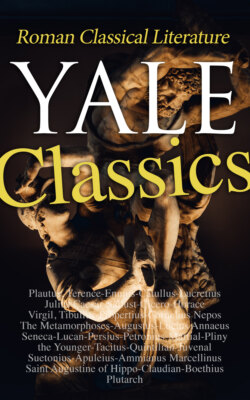Читать книгу Yale Classics - Roman Classical Literature - Луций Анней Сенека - Страница 437
На сайте Литреса книга снята с продажи.
XI
ОглавлениеTable of Contents
At first, indeed, the minds of men were less influenced by avarice than ambition, a vice which has some affinity to virtue; for the desire of glory, power, and preferment is common to the worthy and the worthless; with this difference, that the one pursues them by direct means; the other, being void of merit, has recourse to fraud and subtlety: avarice has money for its object, which no wise man ever coveted. This vice, as if impregnated with deadly poison, enervated both soul and body; is always boundless and insatiable; nor are its cravings lessened by plenty or want. But when Sylla had, by force of arms, made himself master of the state, and, from fair beginnings, brought matters to a bloody issue, his victorious troops gave themselves up to rapine and violence; one coveted a house, another lands: they observed neither measure nor moderation, but exercised the most enormous and inhuman outrages on the citizens. Besides, Sylla, to gain the affections of the army which he had commanded in Asia, had, contrary to the rules of our ancestors, allowed them too great latitude, and indulged them in luxury: the warlike tempers of the soldiers, who were now without employment, became easily enervated by their delicious quarters and a life of pleasure. There the Roman troops first habituated themselves to licentiousness and drinking; to admire statues, pictures, and sculpture; to make spoil of them both publicly and privately; to plunder the temples of the gods, and to ravage every thing both sacred and profane. An army thus disposed, and victorious too, was sure to leave nothing to the conquered: for success unhinges the minds even of wise men; how then should they who were so depraved use their victory with moderation?
